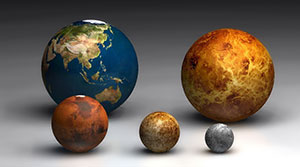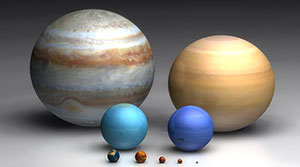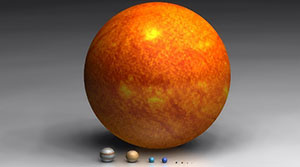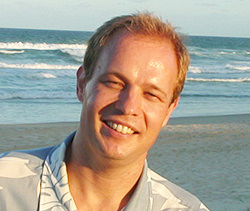
Jason Robert Carey Patterson's
FAQ
Favorites
- Mac or Windows?
- Mac for desktops & laptops, iOS for phones & tablets, Linux for servers (previously Solaris, Amiga, Commodore 64). I've always believed in a solid UNIX base with a great user interface on top, and after 17 years of having to choose one or the other, Mac OS X (macOS) finally gave us both. And now it's even on our phones!
- Linux distro?
- Ubuntu (previously Debian, Slackware). I also think there are way too many distros and some unification & focus is desperately needed. Fragmentation and incompatibility between distros killed the Linux desktop, and it undermines the entire Linux ecosystem. I'm all for moving to a single, standardized distribution. Less is more!
- Web browser?
- Safari on Mac/
iPhone/ iPad, Firefox on Windows & Linux (previously Camino, Netscape, Mosaic, Lynx). Never Internet Explorer, although to be fair, IE did finally become a decent browser in later versions. - Programming language?
- C++ for a very long time. Nowadays no comment, but stay tuned. ;-)
- Vi or Emacs?
- Neither. I prefer the modern text editors of IDEs like Xcode and Visual Studio, though I'm adept in both Vi/
Vim and Emacs when required. As long as a text editor has configurable syntax coloring and tab-based autocomplete, I'm happy. I do wish more editors had better, more configurable syntax coloring, allowing different keywords to be different colors, for built-in types (int, float, char etc) vs "real" keywords (if, for, while, return etc). - Code font?
- Consolas (previously Monaco, Fixed), a monospaced programmer's font that's highly readable even at small sizes, with the letters I, l and 1 nicely distinct, and similarly O vs 0, while keeping the lettering as simple and clean as possible.
- Spaces or tabs?
- Spaces, like any sane person. ;-)
- Version-control system?
- Git using Sourcetree (previously Mercurial, Subversion, CVS). And here's my gitignore/
hgignore config file, which some people like to use as their own. - Command-line shell?
- zsh (previously bash, ksh, never csh!). And here's my zshrc/
bashrc config file, which some people like to use as their own, or perhaps as a starting point. - CPU architecture?
- Alpha & SPARC, but they're dead/
dying, so ARM I guess, even though it only has 16 registers in 32-bit mode. I'm a strong RISC supporter, so I'd really like to see RISC-V succeed, as it's by far the nicest, cleanest architecture out there. Plus, there's no getting around the fact that x86 is pretty awful, even though I've worked with it a LOT. - Game?
- None. I'm not a gamer, although I am a big fan of 3D graphics, and I do fly the X-Plane flight sim now and then. In general, I think games can be fun but often become addictive, wasting an awful lot of people's time that could be better spent on other things. I think the Wii was great for redirecting the gaming industry towards more physical gaming, and I'm a big fan of virtual reality (VR), and was disappointed it never became mainstream.
- Social network?
- None. I'm not into social networking, and I'm surprised at how it's taken off. I always thought "nobody cares what you had for lunch" was right, but maybe they do? I worry that social networking is a constant distraction and can easily become addictive, wasting an awful lot of people's time that could be better spent on other things. It also causes a definite echo-chamber effect, polarizing people's opinions by artificially reinforcing only their own viewpoint. And it encourages certain personality traits...
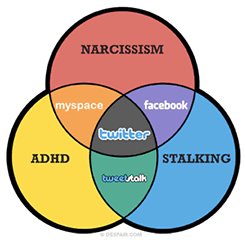
The Computing Industry
- Best thing?
- We change the world. We really do.
- Worst thing?
- The geeky image! I'm a supporter of the campaign for a new image for computing ("geek to chic"). We're not all geeks! And I think the image is changing, slowly.
- Most disappointing?
- The amount of shameless copying. Many successful computing products today are really just shameless copies of earlier products by other people. I believe that's wrong. It's unfair to the original inventors and risks killing the incentive to innovate in the first place.
- Most worrying trend?
- The behavior of the current "big tech" companies. They seem to have once again lost their way, forgotten their humble origins, abandoned their principles & ideals, and become greedy, arrogant & controlling, corrupted by their own success. Where are the modern "good guys", like Apple, Sun and Silicon Graphics of the past? Google, having seen the pattern with IBM & DEC then Microsoft & Intel, literally started with a mantra of "don't be evil", yet look what happened to them! Even Apple lost their way and became a monopolist, the very anthesis of their origins! It's history repeating itself, and it's not good.
- Most exciting?
- The future. We're only half way through the computing revolution. The next 50 years should be amazing. To quote Walt Whitman: "the powerful play goes on, and you may contribute a verse!"
- If you could change one thing?
- The patent system. I'm very much in favor of rewarding innovation, and anti-copying. Indeed, "be original, don't copy" is the first core principle of my company's constitution. But I've seen patents hamper progress in computing more than help it, because when (rarely) upheld, they're too strong and last too long. We need something shorter term, lighter weight, which promotes or even requires licensing, not blocking derivative works. We need a system that rewards innovators while still allowing us to stand on each other's shoulders, not stomp on each other's toes (to paraphrase Richard Hamming).
Vital Stats
- Wii Fit age
- best 20, worst 42
- Screen size
- 27-inch 4K
- Songs on my iPhone
- 1116
- Typing speed
- ~60-70 wpm
- Internet link speed
- Only 110 Mbps, grrr!
- Position in line to get an iPhone
- 11
Personality Traits
- Myers–Briggs type (see types)
- ENTJ, the "commander"
- Signature strengths (see UPenn)
- ingenuity
- critical thinking
- enthusiasm
- love of learning
- bravery
- Greatest weakness
- Kentucky Fried Chicken. I love it, even though it's not healthy. I try to limit myself to having KFC just once a month, not always successfully.
Favorite Books
- Books that changed my life...
- Other thought-provoking books...
Big Questions
- Pizza or pasta?
- Pizza. Chicken & pineapple please, but no ham – pigs are smart and deserve better.
- Boardies or budgies?
- Boardies.
- Glass half full or half empty?
- The glass should be full! But it's half empty! But then it's also half full. In other words, I'm an idealist who's naturally negative but works hard at being optimistic. I think the book Learned Optimism is brilliant and should be read by everyone.
- Historical figure you'd like to meet?
- Michael Faraday and James Clerk Maxwell, the great unsung heroes of physics and "fathers" of electromagnetism. The fact that we are masters of the electromagnetic force, while we're just ignorant novices with the other forces (gravity and nuclear), is largely thanks to Faraday, the greatest experimentalist of all time, and Maxwell, who's insight unified electricity, magnetism and light. If we can master gravity the way we mastered electromagnetism, we'd be able to buy an anti-gravity cell at a local supermarket the way we buy a light bulb or battery today, and if we can master nuclear, we would have consumer appliances like Mr Fusion from "Back To The Future" where you put matter in and get energy out!
- Our place in the Universe?
- We're very special, but very small. Taking a look at these images gives a healthy dose of perspective...
See Also
- computing background (education & history)
- articles & papers (both technical & general)
- and, of course, numerous pieces of software
